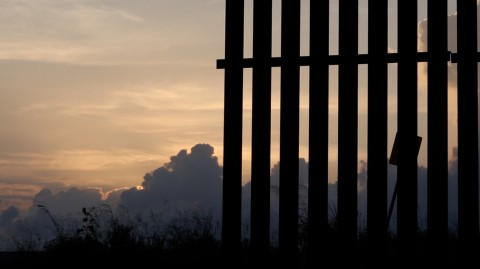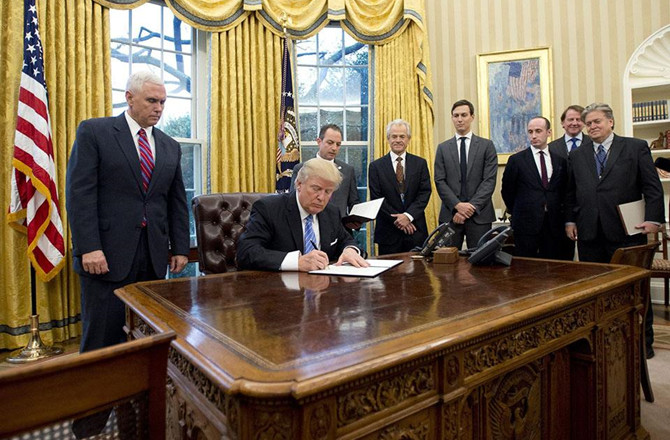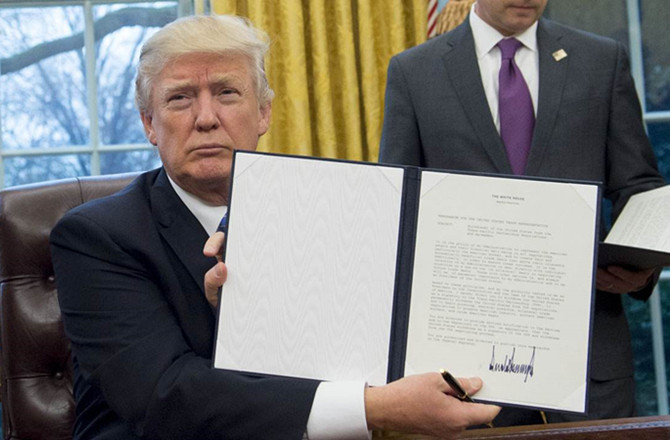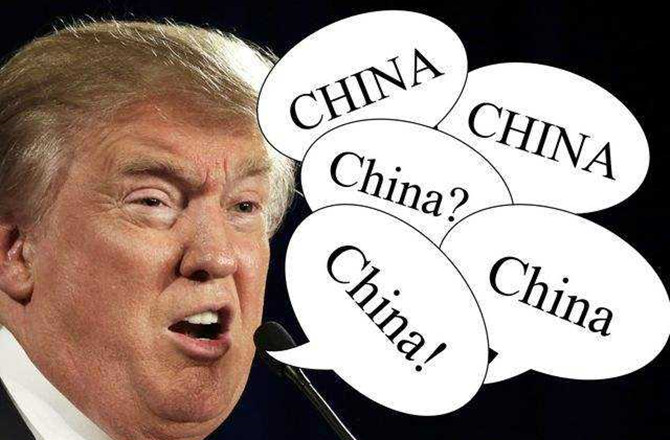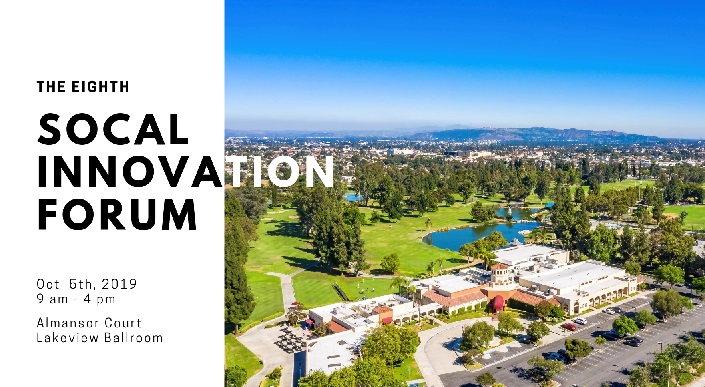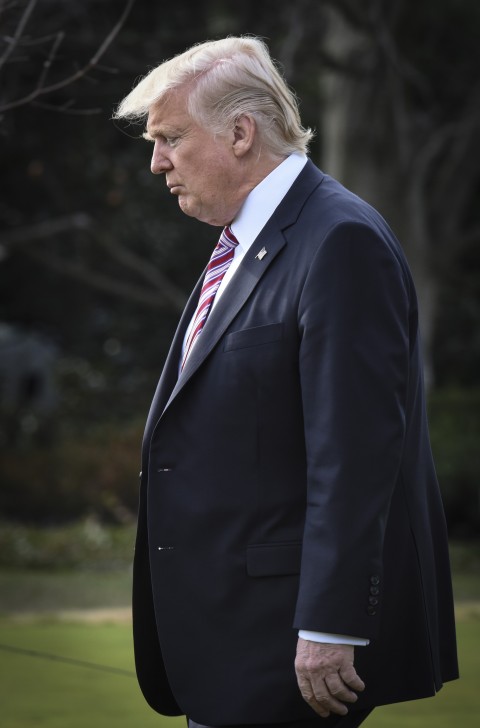
President Donald Trump departs the White House and boards Marine One on January, 26, 2017.(Bill O'Leary/The Washington Post)
No one can accuse Donald Trump of campaigning in poetry. But after just one week in the White House, the new president is bumping up against the hard reality of governing in prose.
Many of the sweeping actions President Trump vowed this week through his executive orders and proclamations are unlikely to happen, either because they are impractical, opposed by Congress and members of his Cabinet, or full of legal holes.
The reality — that yawning gap between what Trump says he will do and what he actually can do — underscores his chaotic start, which includes executive actions drafted by close aides rather than experts and without input from the agencies tasked with implementing them.
On a host of issues, from health care to trade to immigration, Trump began his presidency with executive orders intended to both placate and excite his base by keeping his bold campaign promises — in rhetoric, if not immediate, tangible results. And the White House says Trump’s executive actions should be viewed as initial moves to enact his agenda.
At the Republican retreat for members of Congress in Philadelphia, President Trump's tweets, speeches and executive orders derailed the GOP's plan to agree upon a replacement for Obamacare and set other policy initiatives. (Video:Jayne Orenstein/Photo:Getty Images/The Washington Post https://www.washingtonpost.com/politics/reality-check-many-of-trumps-early-vows-will-never-actually-happen/2017/01/26/2d56bfda-e3e3-11e6-879b-356663383f1b_story.html )
At the Republican retreat for members of Congress in Philadelphia, President Trump's tweets, speeches and executive orders derailed the GOP's plan to agree upon a replacement for Obamacare and set other policy initiatives.President Trump's tweets, speeches and executive orders derailed the GOP's plan to agree upon a replacement for Obamacare and set other policy initiatives.(Video:Jayne “We’re taking the first steps to get it done, with the understanding that some of these things may be a process, but you have to begin the process and that’s what he’s doing — taking bold action and doing everything he can to make sure these things happen,” said Sarah Huckabee Sanders, the principal deputy White House press secretary. “I have no doubt these things are going to happen
In his first major TV interview as president, Trump is endlessly obsessed with his popularity
But the reality is far more complicated. On immigration, for instance, Trump’s call for a border wall paid for by Mexico first has to be funded by Congress. And the possibility that Mexico would pay for the wall — always a long shot — grew even more remote this week after Mexico’s president on Thursday canceled his planned visit to Washington to meet with Trump, citing disagreement over the wall. The White House said that one possible option would be to pay for the project with a border tax on Mexican imports.
On trade, Trump can withdraw from and renegotiate trade agreements, as he promised during the campaign. But there is no guarantee that he will have willing partners with whom to renegotiate better trade deals, and certainly not necessarily with better terms. And change will hardly be instantaneous:Under the terms of the North American Free Trade Agreement, for example, the president or any other leaders must give six months’ notice of his or her intention to withdraw.
Trump has also promised to order an investigation into his false claims that 3 million to 5 million people voted illegally in November for Democratic nominee Hillary Clinton, who beat Trump by nearly 3 million votes. But there is no evidence to support Trump’s claim, and although he has the authority to launch a fact-gathering investigation, it is unlikely to unearth the massive election fraud he is asserting.
One national security executive order he is considering would allow the Central Intelligence Agency to reopen “black site” prisons abroad, as well as reconsider the agency’s now-shuttered enhanced interrogation program. But it does not have buy-in from Defense Secretary James Mattis or CIA Director Mike Pompeo, both of whom privately told lawmakers they were not consulted. Many lawmakers in both parties have also expressed strong opposition to the directive.
[People were taking Trump seriously. Now they’re starting to take him literally, too.]
The ad hoc nature of Trump’s executive orders — including some finalized at the last minute or prompted by an off-the-cuff conversation Trump had with a friend or business executive — has further undermined their impact.
“President Trump needs to go back to civics class because he can direct his employees to do various things, but he cannot repeal a bunch of laws through his executive orders because he needs congressional consent — and the executive orders themselves say that,” said Rena Steinzor, a professor at the University of Maryland’s law school.
Steinzor, who is also a member of the Center for Progressive Reform, added that the language in many of Trump’s executive orders explicitly acknowledges that they can only be done in accordance with the law. “He can’t just sit there and show people pieces of paper with his overly emphatic signature and say, ‘I have changed the world,’ because that’s not how we do it,” she said.
In many ways Trump is simply experiencing the stark difference between campaigning and governing, a riddle that has bedeviled nearly every incoming president, including Barack Obama.


